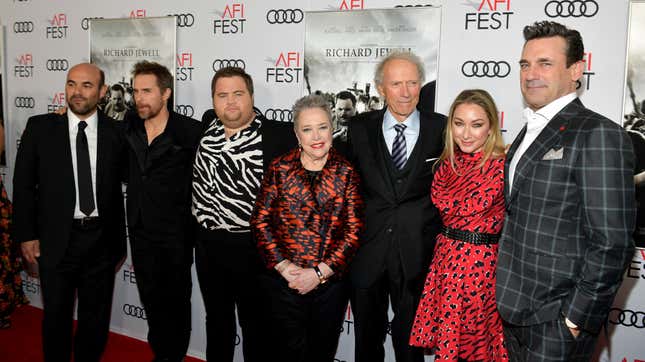There's Absolutely No Reason For Your Woman Journalist Character to Sleep With a Source
EntertainmentMovies

Clint Eastwood’s latest movie is called Richard Jewell, and it’s about (big surprise) Richard Jewell, the security guard who was a suspect in the bombing at the 1996 Summer Olympics in Atlanta. The movie, which chronicles the utter shitshow surrounding Jewell’s non-involvement in the bombing, also takes extreme dramatic license with one woman in the middle of the story.
Atlanta Journal-Constitution reporter Kathy Scruggs (played by Olivia Wilde) broke the story that Jewell was under FBI investigation for a role in the bombing, which Scruggs did by reporting, along with journalist Ron Martz. In the movie version of the events, though, Wilde’s Scruggs offers to sleep with Jon Hamm’s FBI agent character to get the information. Scruggs, who died in 2001, did not sleep with someone to get the story, so the Atlanta Journal-Constitution is demanding the movie release a clear statement exonerating Scruggs.
“We hereby demand that you immediately issue a statement publicly acknowledging that some events were imagined for dramatic purposes and artistic license and dramatization were used in the film’s portrayal of events and characters,” reads the letter — sent to Eastwood Warner Bros., and screenwriter Billy Ray — from attorney Martin Singer. “We further demand that you add a prominent disclaimer to the film to that effect.”
Variety published the letter in full here.
-

-

-

-

-

-

-

-

-

-

-

-

-

-

-

-

-

-

-

-

-

-

-

-

-

-

-

-

-

-

-

-

-

-

-

-

-

-

-

-








































